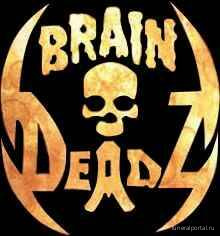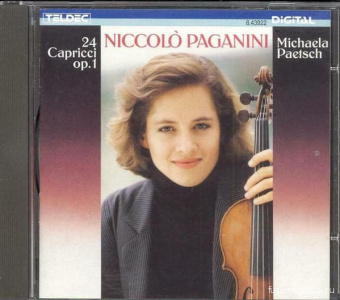The veteran musician was a horn contractor for Philadelphia International Records, served as music director for Teddy Pendergrass, and was a mainstay on the music scene for decades.
/cloudfront-us-east-1.images.arcpublishing.com/pmn/3U7YKH2YOJCHHANNTLXV2K4PGM.jpg)
Sam Reed, the jazz saxophone player who led the band at the Uptown Theatre when it was Philadelphia's premier Black music showplace in the 1960s and served as Teddy Pendergrass' music director in the 1970s, has died. He was 85.Read more Bootsie Barnes Collection, Charles L. Blockson Afro-American Collection, Temple University Libraries
by Dan DeLuca
Sam Reed, 85, the jazz saxophone player whose decades-long career included leading the band at the Uptown Theater in the 1960s when it was Philadelphia’s premier Black music showplace and serving as music director for Teddy Pendergrass in the 1970s, has died.
Mr. Reed died in his sleep at home in North Philadelphia on July 7, his daughter Tamika Lucas said. The cause of death is not known.
The musician last performed his regular Sunday gig at the Top Shelf Lounge in West Philadelphia on July 4, the Sunday afternoon before his death, Lucas said.
“Sam was at the very top among Philly sax players,” says Lovett Hines, artistic director of the Philadelphia Clef Club. “When you talk about Sam, you talk about the legacy he came up with. The Heath Brothers, Benny Golson. When Trane first came to town. Odean Pope. He was part of that whole cadre of young musicians that were coming up during that period.”
What distinguished Mr. Reed, Hines said, was versatility. “Describing Sam as a jazz player is just one part of what he did.”
At the Uptown, Reed’s ensembles would support acts like the Supremes, Martha and the Vandellas, Jackie Wilson, and the Jackson 5 — with “Sam Reed Orch” also advertised on the North Broad Street marquee.
Mr. Reed “was a great music director,” Hines says. “He could play R&B, he could play rock and roll. He could play alto and tenor and clarinet .... He was a complete musician.”
Like Bootsie Barnes, Reed’s friend who died from the coronavirus last year, Hines says, “the only thing that kept him from getting world-class fame was that he elected to stay in Philadelphia.”
Mr. Reed was born in South Carolina and moved to the Point Breeze section of South Philadelphia when he was 6. There he became fast friends with Albert “Tootie” Heath, the jazz drummer who is the younger brother of saxophonist Jimmy Heath and bassist Percy Heath.
It was at the Heath house that Mr. Reed began his musical education, not only from studying with Jimmy Heath, but from luminaries such as Miles Davis, Charlie Parker, and Max Roach, who would stop by on tour. “Jimmy told Charlie Parker that I wanted to play sax,” Mr. Reed told Jazz Philadelphia last year. “He smiled and said to me, ‘Practice all the time.’”
Bob Perkins, longtime jazz DJ on WRTI (90.1-FM), grew up next door to the Heaths in the same South Philly neighborhood with Mr. Reed.
“We would play kids’ games,” Perkins recalls. “And then he went off with Tootie and became a musician. They had a band, and several members became massively famous. Tootie, and Ted Curson on trumpet. Bobby Timmins at the piano. Henry Grimes was the bassist. And Sam. They were all from the neighborhood, and they had this huge band, 15 or 16 pieces. They played the clubs in Philadelphia, and then they went on and became great stars.”
Mr. Reed kept busy in a thriving Philadelphia music scene. In 1957, he played on the No. 1 hit “Get a Job” with the doo-wop band the Silhouettes. In 1963, he started work at the Uptown, an elite venue on what was then called the Chitlin’ Circuit, frequented by James Brown, Aretha Franklin and Stevie Wonder. Many groups arrived without a band. Mr. Reed made sure they received sympathetic support.
He played on locally recorded hits by the Intruders, Billy Paul, and Dusty Springfield, and worked as a horn contractor for Kenny Gamble and Leon Huff’s Philadelphia International Records.
In the late 1960s, Mr. Reed was married to Sarah Dash, who was a member of the vocal group Labelle, with Patti LaBelle and Nona Hendryx, his daughter said. He played on Gonna Take a Miracle, the 1971 Laura Nyro album with the group Labelle recorded at Sigma Sound Studios.
After touring with Pendergrass in the 1970s, Mr. Reed returned to jazz in the 1980s.
Denise King began singing with Mr. Reed that decade. “He gave me my first gig,” she recalled. “I was like a star-struck kid. ‘Oh my God, it’s Sam Reed!’ He’s played with Billie Holiday, he’s worked with Dizzy Gillespie. He’s going to play with me?”
At a show in South Philly, King recalled, she was too nervous to chat up the crowd. “I just stood there like a statue, and he would say, ‘You can’t just stand here, you’ve got to talk to them.’ I said, ‘I don’t know these people, I don’t know what to say.’
“So he snuck up behind me and made this most ugly noise with his horn, and I jumped about six feet in the air! ... The audience just fell out with laughter,” she said. “That’s what he did to help me get over being shy. That was Sam. He just had that kind of loving, jovial, gentle personality.”
/cloudfront-us-east-1.images.arcpublishing.com/pmn/2J3VTBPACRHQDHUCXFCIWPEWPE.jpg)
Sam Reed with Denise King at a drive-in concert at Broad and Diamond Sts. in North Philadelphia in 2021. Karen Warrington
In 2013, Mr. Reed teamed with Italian organist Roberto Magris for the album Ready for Reed on the J Mood label. He was still going strong in this mid-80s, and his death has hit the Philadelphia jazz community hard.
“He was a beloved musician,” Hines said. “You never saw him upset, you never saw him angry.” Mr. Reed could gather the right players for a gig at a moment’s notice. “My wife asked me: Who are you going to call, now that Sam’s gone?”
“My Dad loved his music, probably more than anything,” Tamika Lucas said. “That was his life. ... I knew that he knew a lot of people. But now that he’s gone it’s overwhelming, with people calling and writing and asking questions I can’t answer. I know that he was really, really loved.”
In a 2010 Philadelphia Education in Jazz documentary, Mr Reed shared wisdom with young musicians. “You’re not going to want to play the same thing that somebody else plays. You’re going to want to play your thing. That’s what makes a musician, and that’s what makes music what it is. Music is a beautiful thing.”
Mr. Reed is survived by his children, Tamika and Yerodin Lucas, as well as six grandchildren and 10 great-grandchildren. Funeral services are being planned. A Jam for Sam tribute will be held at the Community Education Center, 3500 Lancaster Ave., from 5 to 8 p.m. Monday, July 19.
Dan DeLuca
R.I.P. Philadelphia jazz and soul legend Sam Reed
https://www.soultracks.com/story-sam-reed-dies








